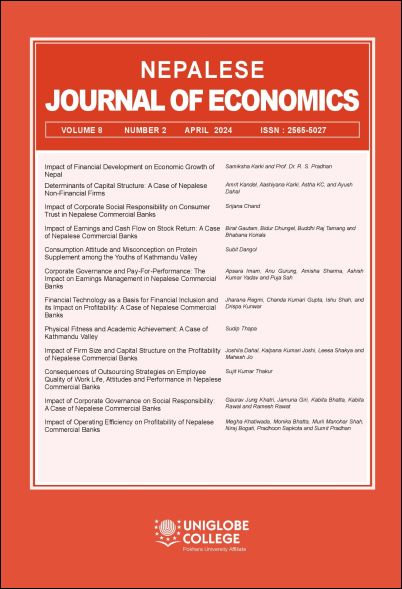Consequences of Outsourcing Strategies on Employee Quality of Work Life, Attitudes and Performance in Nepalese Commercial Banks
DOI:
https://doi.org/10.3126/nje.v8i2.68810Keywords:
employee satisfaction, employee commitment, quality control, cost-efficiency, training and development, organizational performanceAbstract
This study examines the consequences of outsourcing strategies on employee quality of work life, attitudes and performance in Nepalese commercial banks. The dependent variable is organizational performance. The selected independent variables are employee satisfaction, employee commitment, cost-efficiency, quality control, training and development and leadership behaviour. The primary source of data is used to assess the opinions of the respondents regarding employee satisfaction, employee commitment, cost-efficiency, quality control, training and development and leadership behaviour. The study is based on primary data of commercial banks with 120 respondents. To achieve the purpose of the study, structured questionnaire is prepared. The regression models are estimated to test the significance and importance of consequences of outsourcing strategies on employee quality of work life, attitudes and performance in Nepalese commercial banks.
The result shows that employee satisfaction is positively correlated to organizational performance. It indicates that higher the employee satisfaction, higher would be the organizational performance. Likewise, the result shows that employee commitment is positively correlated with organizational performance. It indicates that higher the employee commitment, higher would be the organizational performance. The result also reveals that cost-efficiency is positively correlated with organizational performance. It indicates that increase in cost-efficiency leads to increase in organizational performance. Similarly, training and development is positively correlated with organizational performance. It indicates that providing proper training and development to employees leads to increase in organizational performance. Likewise, quality control is positively correlated to organizational performance. It indicates that better the quality control of products, higher would be the organizational performance.




